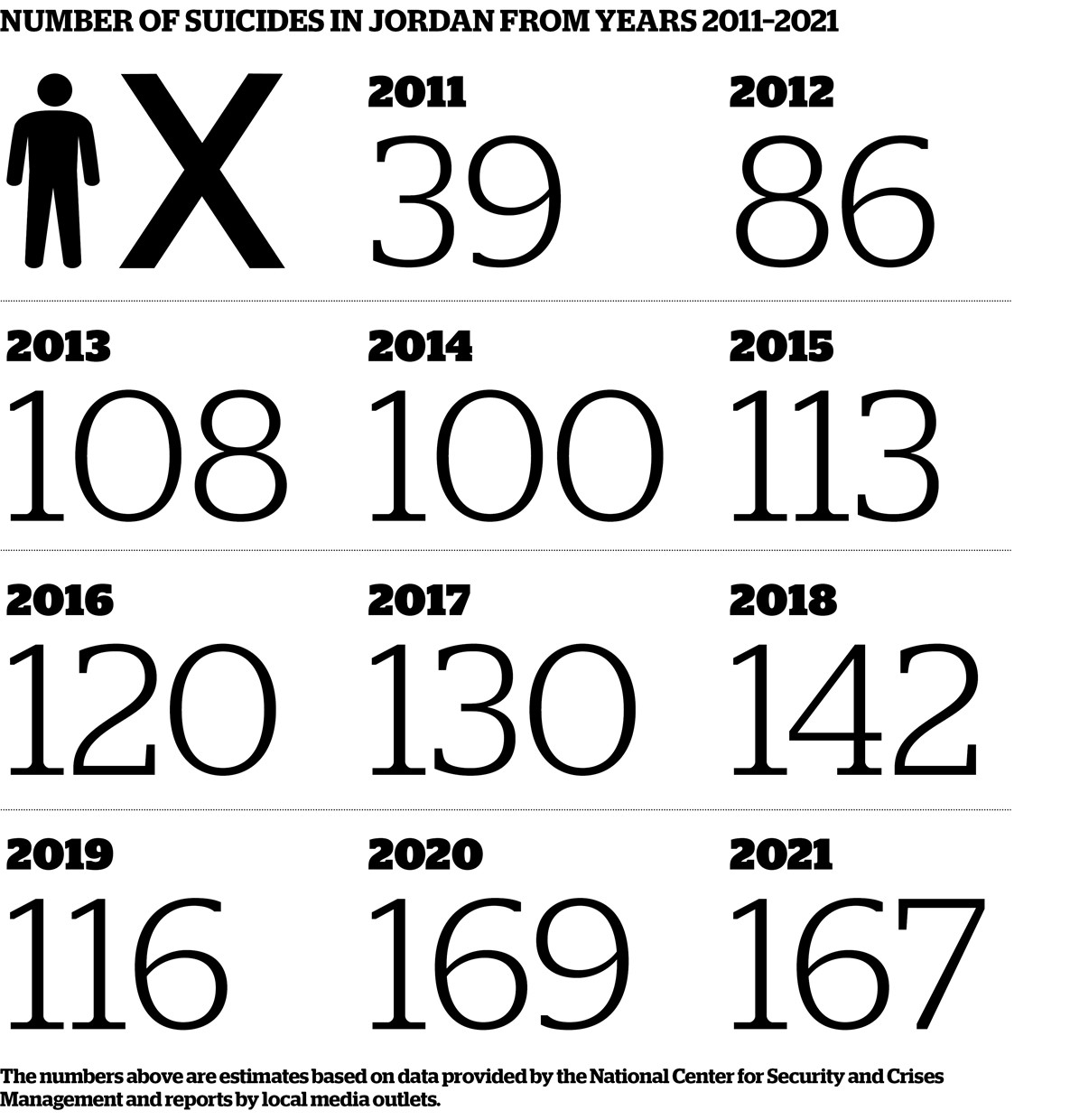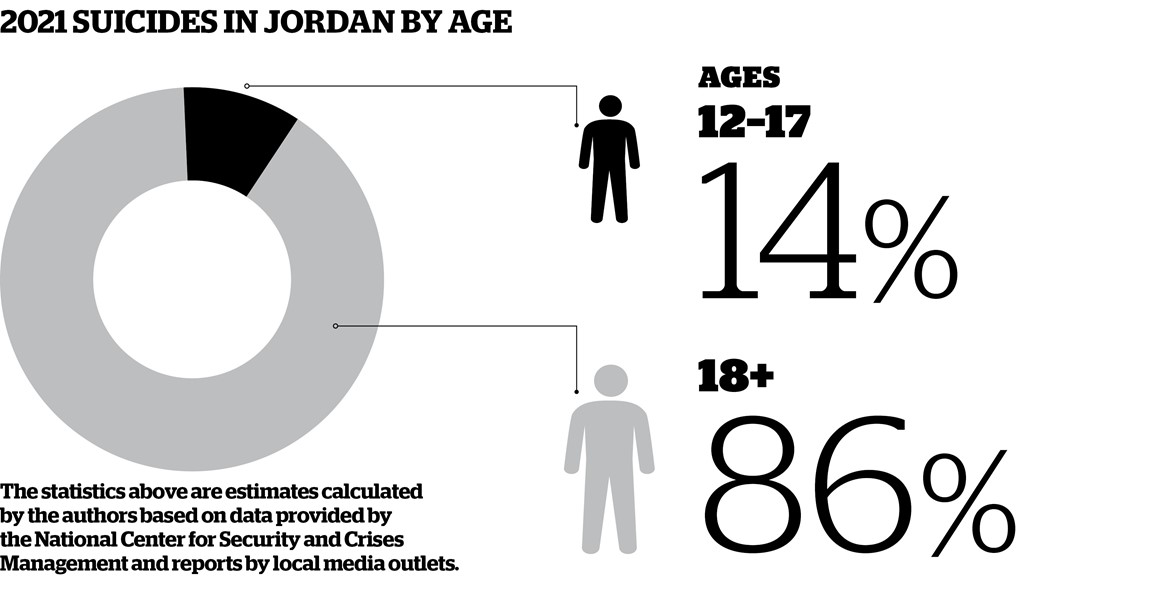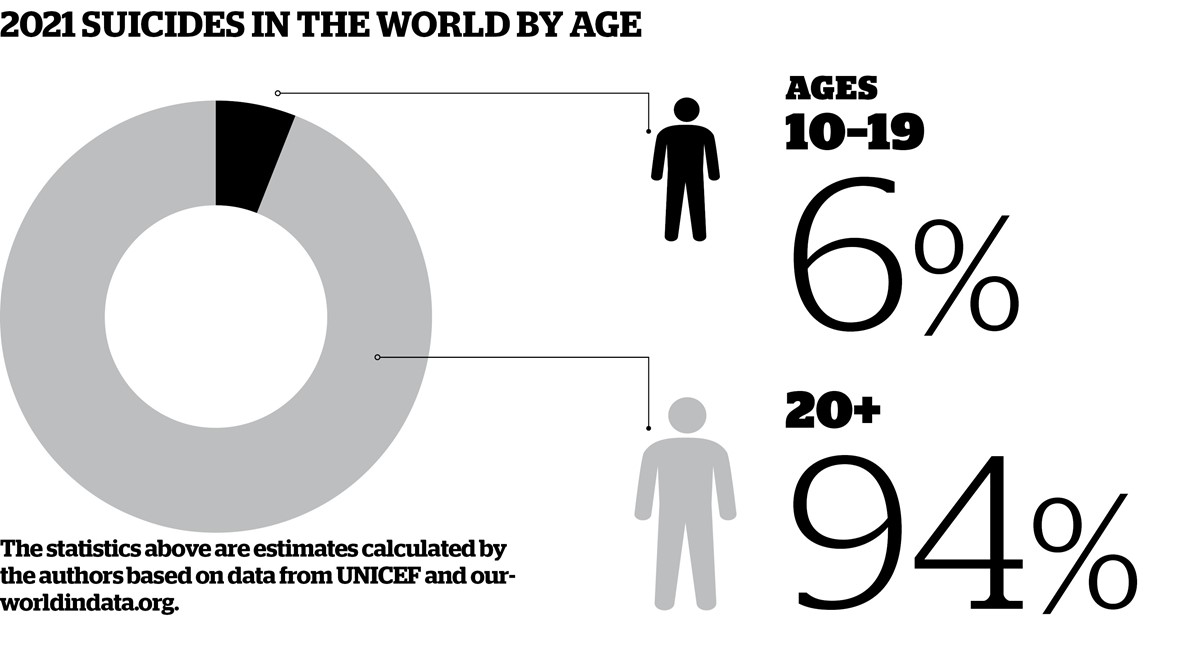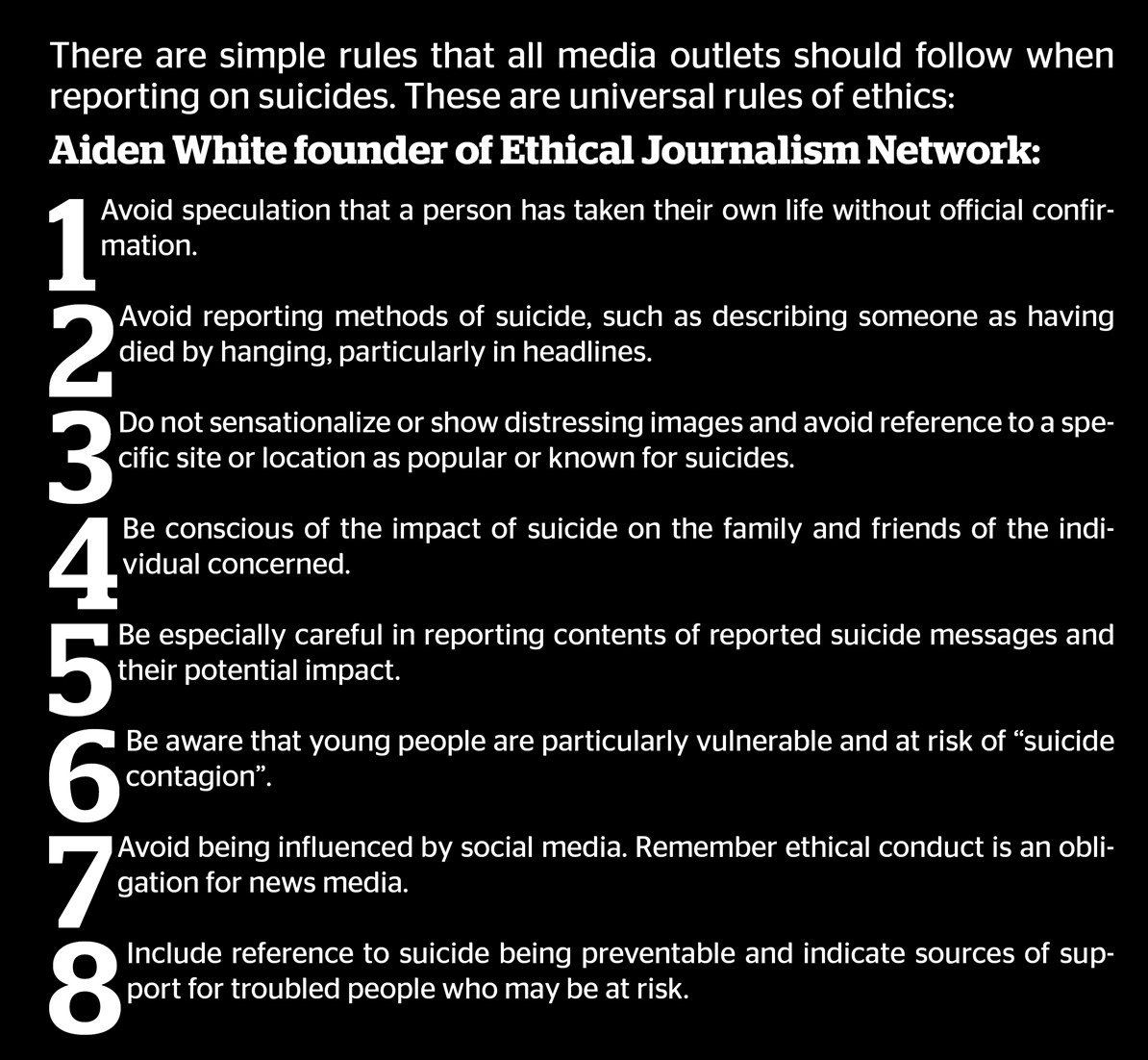It is very sad to
hear that someone has taken their own life. There is a feeling of
helplessness around, and one might ask whether there was anything the community could have
done to help.
اضافة اعلان
We were taught
at home and in school to serve our communities. As 17-year-olds, we have been
doing our best in the different ways we can. The adults around us empower us —
through guided efforts like school projects, internships, or even by
distributing food and visiting people in hospitals.
All this time,
awful news of people committing suicide kept reaching us via mobile phones.
Whether we like it or not, it is hard not to hear about the latest suicide on
different media outlets. And these reports were shocking and disturbing on many
levels.
At our age,
being still in high school, we realize it is challenging to truly support
people in need, let alone people who see no other way forward, and who, for a
variety of reasons, decide to put an end to their lives. We feel it as a
collective failure. And worse, the manner in which these stories are told is
not helpful to other members of society.
Having access to
a variety of news outlets around the world, it became clear that there is
another way of telling these stories — which are important to tell, as sad as
they are — that will not put others in harm’s way. There is a way of telling
the world that a person has tragically taken their life without showing where
or saying how they did it so that people in a very vulnerable place mentally do
not try to follow suit.

This is not
philosophizing. As part of our project, we interviewed several specialists,
psychologists, and media experts in the public and private sectors and experts
within the police and security directorate. And as a product of our research —
which we have presented the findings of to government officials and media
outlets — we aimed, to ensure that people with mental health issues know there
are better ways to live and for the families of those who took their lives to
maintain their dignity.
Official
statistics show that suicide cases have been on the rise during the past two
years. While this rise is not limited to Jordan, it is the country’s duty to
take all necessary measures to reduce and contain such incidents.

While media
coverage of suicide cases may educate individuals, especially the young
generation, by informing them of the risks associated with attempted suicide,
they could also urge individuals who suffer from mental illnesses and their
families not to imitate the publicized suicide cases.
Multimedia
platforms should include a help link in any piece of news about suicide. These
links should enable individuals to access specialists who could provide them
with the needed help.
It is of utmost
importance that the media avoid sharing details about suicide cases, which may
trigger individuals who suffer from
mental illnesses to imitate them. For
example, the media should avoid mentioning areas where a suicide occurred, as
it might encourage others to seek them as a destination for suicide.

From a legal
point of view, articles 4 and 8 of the Audio-Visual Media Law No. 26, for the
year 2015, grant the competent authorities the power to regulate media outlets
and ensure that they conform with the laws and public interests.
Furthermore, it
is crucial to provide specialized centers, online links, and help lines to help
anyone suffering from mental illnesses and start an awareness campaign about
suicide, especially among young people.
Hopefully,
adopting new monitoring policies and including a link offering help in all news
about suicide will lead to a safer environment for our generation and others to
engage in.
Today, filming
and posting a suicide on Facebook has become a regular occurrence. It is
shocking and makes one sad and angry. That someone takes his own life is tragic
enough as it is, but that some bystanders feel the need to post it on social
media and film it in the first place makes us wonder who is more in need of
mental health support.
We believe that
the media should be part of the solution when it comes to informing the public
about issues such as suicides that affect communities and families everywhere.
For this to happen, they must not only stick to their mandate to “do no harm”,
but they must also offer an opportunity for people to know that help is at hand
for those who need it, and that it is OK to talk about one’s issues because
nothing is more important than a human life.

To be able to do
that effectively, the media must be equipped with the right tools: proper
training on mental health coverage and a hotline that media outlets can publish
whenever these issues are discussed, where anyone will receive the help and
support so badly deserve.
This unhealthy
exposure of other people’s tragedies, as though they were movies to entertain
our society, should be ended. And there is an urgent need to develop a hotline
for media outlets to use, and that can be promoted in public places, which
anyone who needs support can safely call and find the needed help.
Mental health is part
and parcel of our overall health. We saw, during the pandemic, how much we all
suffered from isolation and how so many people were affected. It is important,
and it is not shameful, to seek help to address mental issues. No one thinks it
is shameful to go to the doctor for a broken arm. Having a mental health
problem is no different. And the sooner we realize this, the sooner we can
properly help those in our society who suffer from mental health issues.
Read more Features
Jordan News



